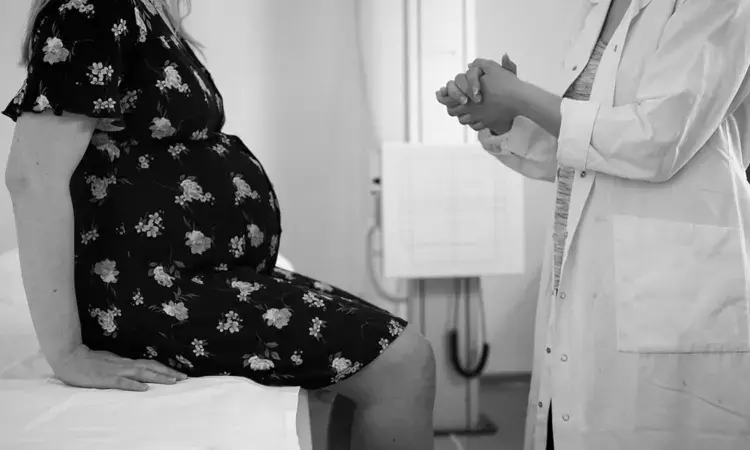- Home
- Medical news & Guidelines
- Anesthesiology
- Cardiology and CTVS
- Critical Care
- Dentistry
- Dermatology
- Diabetes and Endocrinology
- ENT
- Gastroenterology
- Medicine
- Nephrology
- Neurology
- Obstretics-Gynaecology
- Oncology
- Ophthalmology
- Orthopaedics
- Pediatrics-Neonatology
- Psychiatry
- Pulmonology
- Radiology
- Surgery
- Urology
- Laboratory Medicine
- Diet
- Nursing
- Paramedical
- Physiotherapy
- Health news
- Fact Check
- Bone Health Fact Check
- Brain Health Fact Check
- Cancer Related Fact Check
- Child Care Fact Check
- Dental and oral health fact check
- Diabetes and metabolic health fact check
- Diet and Nutrition Fact Check
- Eye and ENT Care Fact Check
- Fitness fact check
- Gut health fact check
- Heart health fact check
- Kidney health fact check
- Medical education fact check
- Men's health fact check
- Respiratory fact check
- Skin and hair care fact check
- Vaccine and Immunization fact check
- Women's health fact check
- AYUSH
- State News
- Andaman and Nicobar Islands
- Andhra Pradesh
- Arunachal Pradesh
- Assam
- Bihar
- Chandigarh
- Chattisgarh
- Dadra and Nagar Haveli
- Daman and Diu
- Delhi
- Goa
- Gujarat
- Haryana
- Himachal Pradesh
- Jammu & Kashmir
- Jharkhand
- Karnataka
- Kerala
- Ladakh
- Lakshadweep
- Madhya Pradesh
- Maharashtra
- Manipur
- Meghalaya
- Mizoram
- Nagaland
- Odisha
- Puducherry
- Punjab
- Rajasthan
- Sikkim
- Tamil Nadu
- Telangana
- Tripura
- Uttar Pradesh
- Uttrakhand
- West Bengal
- Medical Education
- Industry
Risk Rises: Low-grade fever in prolonged rupture of membranes linked to maternal and neonatal morbidity, study reveals

Israel: In a recent retrospective cohort study published in the American Journal of Obstetrics and Gynecology, researchers have uncovered a concerning association between prolonged rupture of membranes (PROM) exceeding 12 hours at term and increased infectious outcomes characterized by low-grade fever. The findings highlight potential risks for mothers in this clinical scenario.
In women with rupture of membranes (ROM) (>12h) at term, the researchers reported higher neonatal and maternal morbidity among those with low-grade fever versus normal body temperature. Low-grade fever was associated with a higher Enterobacteriaceae isolates risk in chorioamniotic membrane cultures and might be the initial presentation of peripartum infection.
"In term pregnancies with PROM (>12h), women with low-grade fever experienced higher rates of adverse events, including puerperal endometritis (OR 9.0), cesarean delivery, surgical site infections, umbilical cord pH<7.2 & NICU admissions (OR 3.2)," the researchers wrote.
Intrapartum fever (>38°C) is associated with adverse neonatal and maternal outcomes. However, the correlation between low-grade fever (37.5-37.9°C) and adverse perinatal outcomes is controversial. Considering this, Raneen ABU SHQARA, Azrieli Faculty of Medicine, Bar Ilan University, Safed, Israel, and colleagues aimed to compare neonatal and maternal outcomes of women with prolonged rupture of membranes at term, between those with low-grade fever and those with normal body temperature.
For this purpose, the researchers conducted a retrospective study comprising women hospitalized in a tertiary university-affiliated hospital between 2021 and 2023, with singleton term and ROM>12h. Women were categorized as having normal body temperature (<37.5°C) or intrapartum low-grade fever (37.5°-37.9°C).
The co-primary outcomes: postpartum endometritis and neonatal intensive care unit admission (NICU) rates were compared between these groups.
Secondary maternal outcomes were cesarean delivery rate, intrapartum leukocytosis (>15,000/mm2), postpartum hemorrhage, postpartum fever, postpartum length of stay, and surgical site infection. Secondary neonatal outcomes were early-onset sepsis, umbilical artery cord pH<7.2 and pH<7.05, NICU length of stay, 5-minute Apgar score <7, and respiratory distress.
The study led to the following findings:
· Included were 687 women with ROM 12-18h and 1109 with ROM>18h.
· In both latency groups, among those with low-grade fever versus normal body temperature, the rates were higher for cesarean delivery, surgical site infections, endometritis, umbilical cord pH<7.2, NICU admission, and sepsis work-up.
· Among those with low-grade fever, the positive likelihood ratios were 12.7 and 3.2 for puerperal endometritis and NICU admission, respectively.
· Among women with ROM>18h, the rates were higher of Enterobacteriaceae isolates in chorioamniotic membrane cultures for those with low-grade fever vs. normal intrapartum temperature (22.0% versus 11.0%).
· Low-grade fever (odds ratio (OR) 9.0), AROM (OR 4.2), and cesarean delivery (OR 5.4) were independently associated with puerperal endometritis.
· Low-grade fever (OR 3.2) and cesarean delivery (OR 1.9) were independently associated with NICU admission.
As research continues to evolve, the implications of this study serve as a poignant reminder of the complexities involved in managing PROM at term. By prioritizing thorough assessment and evidence-based interventions, healthcare providers can strive towards better outcomes for mothers and newborns in obstetric practice.
Reference:
Abu Shqara R, Nakhleh Francis Y, Lowenstein L, Frank Wolf M. The relation between low-grade fever during prolonged rupture of membranes (>12 hours) at term and infectious outcomes: a retrospective cohort study. Am J Obstet Gynecol. 2024 Jun 11:S0002-9378(24)00665-3. doi: 10.1016/j.ajog.2024.05.054. Epub ahead of print. PMID: 38871240.
Dr Kamal Kant Kohli-MBBS, DTCD- a chest specialist with more than 30 years of practice and a flair for writing clinical articles, Dr Kamal Kant Kohli joined Medical Dialogues as a Chief Editor of Medical News. Besides writing articles, as an editor, he proofreads and verifies all the medical content published on Medical Dialogues including those coming from journals, studies,medical conferences,guidelines etc. Email: drkohli@medicaldialogues.in. Contact no. 011-43720751


